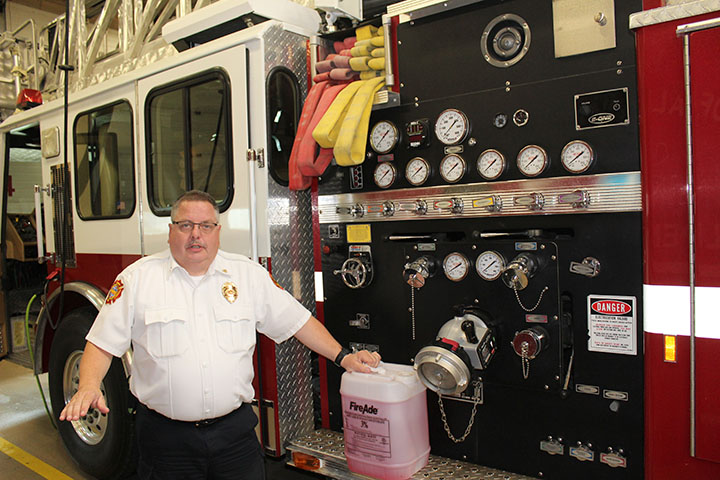Michigan House of Reps passes AFFF bills
By Steve Schulwitz | Alpena News | October 5, 2019

Read the full article by Steve Schulwitz (Alpena News)
“ALPENA — A package of three bills that would keep better tabs on the amount of hazardous firefighting foam used in the state was passed in the state House this week and is now headed to the state Senate.
One of the bills in the package, House Bill 4389, was sponsored by state Rep. Sue Allor, R-Wolverine, who represents Northeast Michigan, including Oscoda and Alpena counties, both of which have ongoing issues with contamination from per- and polyfluoroalkyl substances, also known as PFAS.
For half a century, many fire departments in Michigan fought fires with what’s called an aqueous film-forming foam, or AFFF, to quickly extinguish flammable liquid fires. The issue is that such so-called Class B-type foam consists of PFAS, which is now popping up around the state in the ground and water near where it was used for fighting fires.
Allor said that, if her bill is passed in the Senate and signed by Gov. Gretchen Whitmer, it would track inventories of the chemical at fire stations in Michigan and require fire chiefs to report its usage so the Michigan Department of Environment, Great Lakes, and Energy can respond.
A second bill in the package, House Bill 4390, would prohibit the use of firefighting foam containing PFAS chemicals in training and require state training to include instruction on the safe use and disposal of such products. The third bill, House Bill 4391, would establish best practices for the handling and storage of the chemical and any equipment that was exposed to it during a response or training.
The bills passed the House by wide margins.
Allor said that, at some point, most, if not all, fire departments have utilized the foam for emergencies or training, polluting many sites around the state. She said that, unfortunately, the foam will still need to be used for some fires, such as those involving gasoline and oil, which could be very difficult to extinguish without it.
Because of that fact, Allor said it is imperative that any unused or excess AFFF be inventoried and, when it is used, a detailed report needs to be submitted within 48 hours to DEGLE for review and possible action…”
This content provided by the PFAS Project.
Location:
Topics: